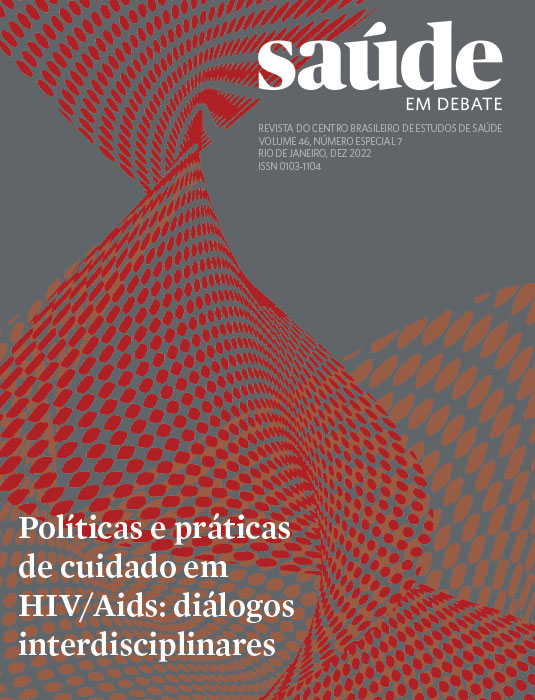Sexuality, sociability, work, and HIV prevention among vulnerable populations during the COVID-19 pandemic
Keywords:
Disease prevention, HIV, Vulnerability analysis, Sexual and gender minorities, COVID-19Abstract
The COVID-19 pandemic has restricted access to HIV/AIDS prevention and services, affectin individual living and health conditions. We aimed to analyze the access of Men Who Have Sex with Men (MSM) and transgender women to HIV prevention technologies, their sexual, sociability, and work practices during the COVID-19 pandemic in Curitiba (PR), Brazil. We implemented virtual semi-structured interviews and adopted the conceptual framework of vulnerability. The MaxQDA software facilitated the analysis. The results showed that many MSM managed to isolate themselves socially, restricting sexual partnerships while some lost their jobs, and income decline revolved among self-employed or freelancers. Female/trans
sex workers had to stop social distancing to return to sex work, exposing themselves to the coronavirus. Pre-Exposure Prophylaxis (PrEP) was adopted by those already using it. The of PrEP and Post-Exposure Prophylaxis (PEP) offer was preserved but modified. Specialized services adapted the attendance but generated users’ exposure and serological status disclosure. In conclusion, we highlight the need for continuous HIV services in public health emergencies, a State-guaranteed right.
Downloads
Published
How to Cite
Issue
Section
License
Copyright (c) 2023 Saúde em Debate

This work is licensed under a Creative Commons Attribution 4.0 International License.




















